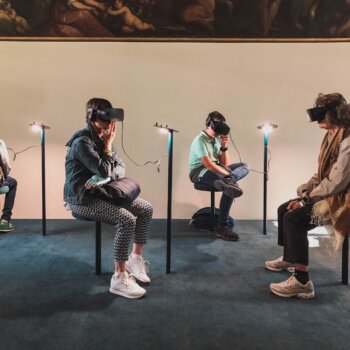Key Takeaway:
President Biden signed a US$95 billion foreign aid bill in April 2024, allowing TikTok’s parent company, ByteDance, to sell the app. If the law stands, TikTok will be blocked from any US app store or web-hosting service, affecting over 170 million US users, including 62% of Americans aged 18 to 29. Critics argue that TikTok enables foreign influence of US public opinion, promotes harmful behaviors among minors, and undermines Americans’ data privacy. However, these concerns are not unique to TikTok among social media platforms. Lawmakers have expressed concerns that the Chinese government could influence public opinion and politics by controlling content TikTok users see. Additionally, the app poses an unacceptable threat to data privacy, as it has had a wide range of data privacy scandals.
When President Joe Biden signed a US$95 billion foreign aid billinto law on April 24, 2024, it started the clock on a nine-month window for TikTok’s China-based parent company, ByteDance, to sell the app. The president can extend the deadline by three months, and TikTok has indicated that it plans to challenge the law in court.
If the law stands and the company fails to sell the app, TikTok will be blocked from any U.S. app store or web-hosting service. This would affect TikTok’s over 170 million U.S. users, including 62% of Americans ages 18 to 29.
It would also alter the news and information landscape. Unlike its competitors, TikTok has been annually increasing its proportion of users who regularly seek news on the platform. Nearly one-third of Americans under 30 use TikTok as a news source.
The main arguments against TikTok under ByteDance’s ownership include that it enables foreign influence of U.S. public opinion, promotes harmful behaviors among minors, and undermines Americans’ data privacy. However, none of these concerns are new or unique to TikTok among social media platforms.
Foreign influence and propaganda
Lawmakers have expressed concern that the Chinese government could influence U.S. public opinion, and thereby politics, by exerting control over what content TikTok users see. Rep. Mike Gallager (R-WI), co-sponsor of the House bill on TikTok, warned that allowing TikTok to establish itself as the dominant news platform in America is placing control of information in the hands of ByteDance and, by extension, the Chinese Communist Party.
Sen. Dan Sullivan (R-AK) referred to TikTok’s role in challenging ConocoPhillips’ Willow oil drilling project in Alaska as a possible Chinese influence operation meant to undermine U.S. energy dominance.
But U.S-based social media platforms have been and continue to be exploited by a range of foreign governments, including China, and their proxies who use them to attempt to influence U.S. public opinion. Beginning with its efforts to interfere with the 2016 presidential election, Russian intelligence has long used platforms like Facebook and X, the platform formerly known as Twitter, to these ends for nearly a decade.
These influence campaigns create and maintain coordinated cross-platform networks. Researchers assert that Facebook, Instagram, X and YouTube refuse to provide the access to the data necessary to track or prevent such activities.
Hazardous to minors
Some lawmakers also caution that TikTok feeds children content linked to dangerous behaviors, like eating disorders and self-harm. However, all social media may pose these threats.
For example, leaked internal documents from a whistleblowerrevealed that Meta has known since 2019 that its platforms are likely hurting U.S. minors’ mental health and well-being. The company’s internal research found that the platform contributed to body image issues and eating disorders among teen girls and exposed teens to other harmful behaviors, such as bullying, drug abuse and self-harm.
Currently, 41 U.S. states and the District of Columbia have filed lawsuits against Meta for the damage allegedly done to minors.Whistleblower Frances Haugen spoke before the U.S. Senate in 2021 about the dangers posed by Meta’s platforms.
At the same time, there has been little outcry about how time spent on social media increases young people’s exposure to hate-based content or that platforms such as YouTube funnel users into pipelines for radicalization.
Data security and privacy
Proponents of the TikTok sale-or-ban law also claim that the app constitutes an unacceptable threat to data privacy. Rep. Gallagher asserted that the Chinese government could use TikTok for espionage to “find Americans, exfiltrate data and track the location of journalists.”
Yet, there is little reason to believe Americans’ data is safer with U.S.-based companies. Meta has had a wide range of data privacyscandals. Last year, leaked documents showed that even Meta engineers themselves have minimal understanding or control over how people’s data is used.
Rep. Raja Krishnamoorthi (D-IL), co-sponsor of the House bill on TikTok, invoked a case involving the dating app Grindr as a successful precedent for forcing ByteDance to divest TikTok. In 2020, the Chinese company that owned Grindr sold the app to a U.S. company following security concerns similar to those surrounding TikTok. But, just last year, a fringe Catholic group in Denver purchased location and usage data from Grindr and other dating apps to track LGBTQ+ priests.
Additionally, the Chinese government hardly needs control of TikTok to access the troves of data that apps, devices and smart appliances collect from Americans. Much of this data can be purchased, completely legally, from commercial data brokers, regardless of who owns it.
Data freely available for purchase on the open market has been shown to include the location data for people visiting Planned Parenthood and mobile device location pings that can be deanonymized to reveal the whereabouts of the president of the United States.
The need for regulation
Concerns about TikTok are not unfounded, but they are also not unique. Each threat posed by TikTok has also been posed by U.S.-based social media for over a decade. I believe that lawmakers should take action to address harms caused by U.S. companies seeking profit as well as by foreign companies perpetrating espionage.
Protecting Americans cannot be accomplished by banning a single app. To truly protect their constituents, lawmakers would need to enact broad, far-reaching regulation.





























